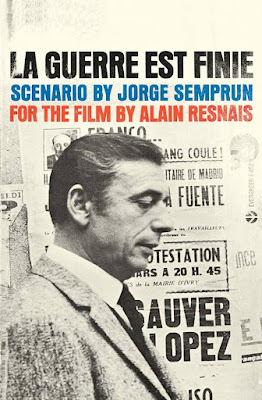The War Is Over – the (translated) phrase with which Franco had declared the end of the Spanish Civil War – was as much its ‘Left Bank’ auteur Alain Resnais’ as it was screenwriter Jorge Semprún’s and actor Yves Montand’s. This landmark film, which comprised of a remarkable interplay of political discourse and actions with existential and moral enquiries, alternated between arresting 1960s zeitgeist and introspective memories. Resnais portrayed these contrapuntal elements by juxtaposing a classically structured narrative thrillingly laced with the here-and-now of the present, reflective voiceovers and dazzling montage sequences – including a nod to Godard’s magnificent A Married Woman – that fragmented the past while suffusing it with impressions, premonitions and déjà vu. Semprún, who wrote the nuanced screenplay, composed the film’s protagonist Diego Mora – an ageing Spanish Communist, anti-Franco resistance, career revolutionary and exile – based on himself. Montand, in one of his most celebrated performances, imbued the character – a person of many identities, no permanent home, and bouncing between his ideals and dilemmas – with such profound weariness that it exuded from the screen. Set over the course of a few days in Paris – he’s just about escaped getting caught while leaving Spain, but is determined to go back prior to a massive general strike being planned – he finds himself vacillating between his girlfriend Marianne (Ingrid Thulin), who he always returns to, and Nadine (Geneviève Bujold), a young leftist woman who’s part of an extremist group with political views radically different from his own; meanwhile, he also senses growing differences with his own party comrades. Shot in sensuous B/W by Sacha Vierny, this moody, poetic, understated and formally exhilarating work was therefore as politically engaging as it was profoundly personal.
Director: Alain Resnais
Genre: Drama/Political Drama
Language: French
Country: France


No comments:
Post a Comment